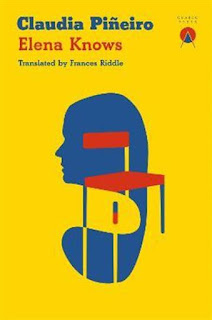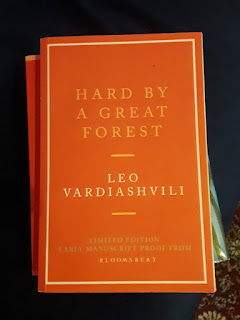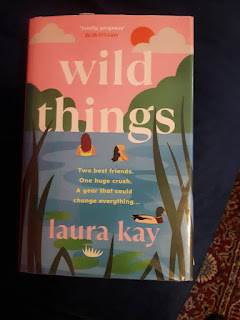Elizabeth McCracken is a novelist, not a memoirist, but I found her firstly in 'An Exact Replica ...' nearly a decade ago, swiftly followed by 'The Giant's House'. 'The Hero of This Book' is a novelisation of her relationship with her extraordinary mother. In the story the narrator retraces some of her final times spent with her mother, and navigates the grief of losing a much loved parent. There was so much to love about this book, so here come a bunch of quotes, because the story reflects thoughtfully on loss, parents and life in general. This first one I liked, because it makes a distinction about different kinds of loss:
"Condoling friends used the words grief and mourning. But neither was what I felt. All my life I'd heard people use those words to discuss the ordinary deaths of elderly people - or, worse, elderly animals - and (I am hard-hearted) I found them melodramatic. Those old people and dogs were never going to be immortal. Grief, as I understood it - grief and I were acquainted - is the kind of loss that sets you on fire as your struggle to put it out. My mother's death hadn't changed my mind. I just missed her. I hated to see her go. But she's had a sweet end, or so I kept telling people, though who was I to speak for my mother? She'd hate that, my opinion about her experience. It was sweet for her family, at home with hospice nurses and cats, and friends around the bed, at the time - 2018 - when you couldn't count on a sweet end but it wasn't impossible." (p.5)
What her mother didn't approve of:
"I took her hand. I did this without permission. My mother was not a hand-holder. I sat by her bed. I said, 'I'm sorry this happened to you.' Without permission. I found her dear in her reduced state. I called her honey. I kissed her hello and goodbye. I can't imagine she approved of any of it.
Not this, either: typing sentences about her, calling her only my mother, as though that were her most important identity. 'I don't approve,' she said, of Barbie dolls, and certain flavors of bagels, and all bagels cut in half, and eating anything but the traditional pies on Thanksgiving; she disapproved of fiction written specifically for young adults (she believed they should be reading William Saroyan) and tutus on small girls. She enjoyed being a crank." (p.62-3)
This lovely interaction in a corner shop:
"I thought about buying cigarettes - I smoke sometimes when I travel - but they were kept behind doors, so you couldn't look at brands and then say casually 'Silk cut, please.' You had to be a serious smoker with a plan, and I wasn't. Years before I'd been a devotee of the English ten-pack; a lovely thing, to be able to buy just ten cigarettes at a time. Like my father before me, I fooled myself when it came to bad behaviour. I worried that the young woman behind the store counter wouldn't like me if I asked. For anything large, I don't worry about judgement. Only for the cigarettes, the 10:30am prosecco. Only going on a Ferris wheel by myself, alone and middle-aged. She had a pretty, lupine face.
I pretended I didn't speak the language, put my sandwich and brownie on the counter, and paid in coins, which I counted out as though I were unfamiliar with the notion of money. I tried to look worthy of kindness." (p.92)
And the trials of old age, to be resisted at all costs:
"But her and my mother knew: When you're old, safety is overrated. Safety is the bossy Irish lady, who is, after all, your employee, taking away your wineglass, saying, 'That's enough, that's enough now, that's enough now, darlin'.' Safety puts you in a nursing home and turns you over regularly so that you do not die in your sleep. You could be kept for years if you weren't careful , like a roped-off chair in a museum that nobody is allowed to sit in, which makes it only something shaped like a chair. Watch out for safety. It will make you no longer yourself, only an object shaped that way." (128-9)
The narrator has a lovely visit to London, relishing doing things alone. Relishing things she might not have done with her mother. Missing her mother, but enjoying her activities while thinking how she had loved doing them with her mother, recalling her mother's exuberant enjoyment of life.
It's a story, it's not a memoire about Elizabeth's mother, but I hope it nearly is.
Stay safe. Be kind. Mum's are the best.














